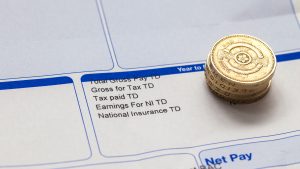
The large figures posted in newspapers as students’ loans are usually a figure with no much meaning. The most important thing to consider is how much you are expected to pay.
There is a difference between the cost and the price tag.
How much you are to repay as your student loan is dependent on how much you earn after university.
When you apply for the loan, you will not need the cash directly in your hands to pay for university. Once the application has gone through, the student loan company pays directly to your university. There is an additional loan for cost of living and different students get different support in finances.
 If your annual income after university is £ 21,000 and above you will be expected to pay 9%. Any amount less than this and you do not pay anything. This income could be a salary, income from a business or proceeds from investments or savings.
If your annual income after university is £ 21,000 and above you will be expected to pay 9%. Any amount less than this and you do not pay anything. This income could be a salary, income from a business or proceeds from investments or savings.
Any outstanding debt that has existed for 30 years is written off. You no longer owe any money to the student’s loan company once you have completed paying the loan or if your debt remains unpaid for 30 years. For this reason, you will find people who are almost retiring going back to university to higher learning since they know the debt will be written off at some point, sooner for them.
Repayment of student loans does not involve debt collectors. The repayment is done in a similar way to income tax, through a payroll meaning that you employer deducts the amount payable from your gross salary and submits it to the loans company.
Interest will be charged “above inflation”. For most students, there is no interest fee charged on their loans. It is similar to borrowing a basket of grocery and you pay just enough to buy the same.
It is now possible for part-time and post-graduate students to access student loans for tuition. They are not entitled to get the upkeep loans or grants.
Selecting a course that has high tuition fee will not cost you more than the person who selects a low cost course. Both students will pay the same amount of money per month or per year, the only difference will be the duration it takes to clear the loan.
First year students on full time courses are eligible for maintenance loans to cater for their accommodation, food, travel and other related costs.
Huge loans are now available in place of grants since 2016/17. This means that students joining at this period now get one huge loan for tuition and maintenance.
Student loans are not listed on your credit records unlike other credit facilities like credit cards, mortgage etc. and therefore cannot affect your other credit applications.
Having a student loan can only affect your ability to get a mortgage in that the lender will rate you as one who will make small payments due to your current student loan as far as the affordability checks are concerned.
 Repaying your loan early is not always a good idea. If you make monthly overpayments, it does not reduce on the overall amount you are required to pay since the calculation is based on how much you earn and not how much you borrowed. Those earning the most salaries are not the necessarily paying the most, mostly because the accrued interest is not as much.
Repaying your loan early is not always a good idea. If you make monthly overpayments, it does not reduce on the overall amount you are required to pay since the calculation is based on how much you earn and not how much you borrowed. Those earning the most salaries are not the necessarily paying the most, mostly because the accrued interest is not as much.
Having a student loan is not having a debt per se. this is because you only pay it back when you have a well-paying job. If the name were to be changed, it can be referred to as ‘student’s contribution’.
The loan should be considered as some kind of income for the student and any other form of grant, wages from part-time jobs, money given by relatives etc. should be well spent by the student.
If you have to choose between a fee waiver and a bursary, go for the latter. This is because it is mostly given in cash and the money can be substituted for other use like accommodation, meals etc.